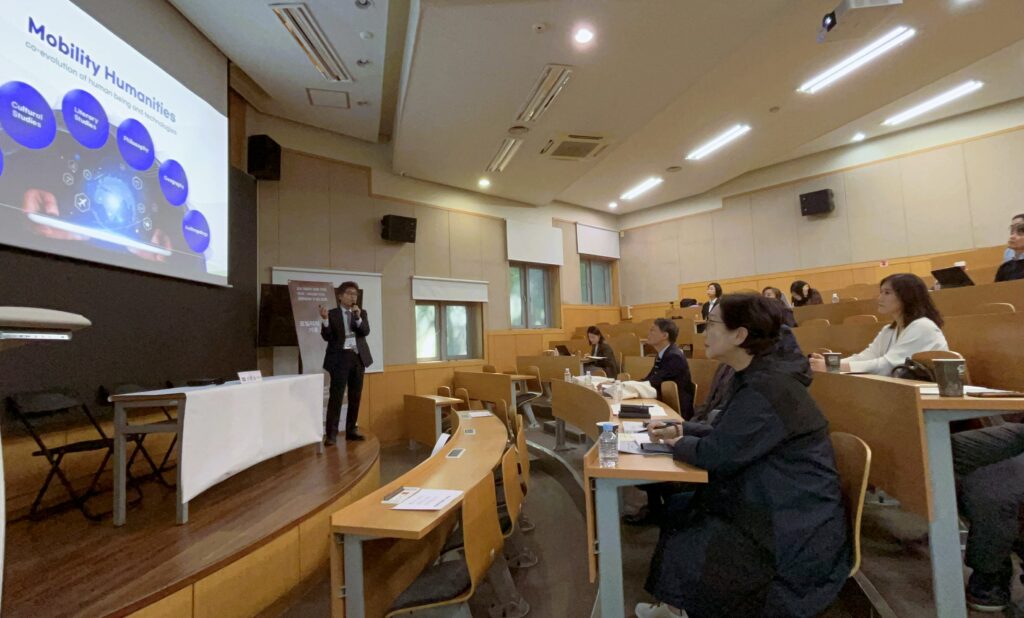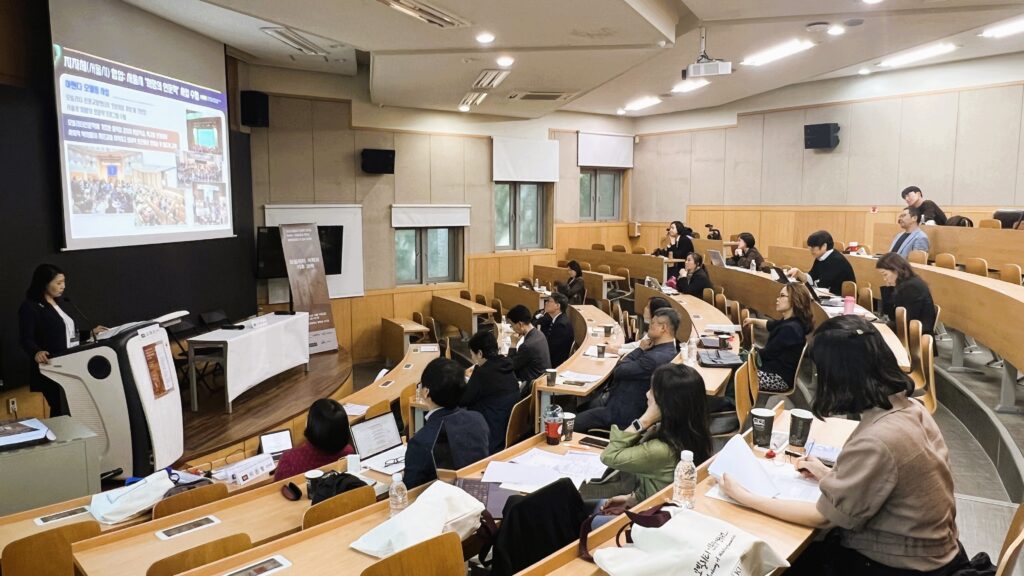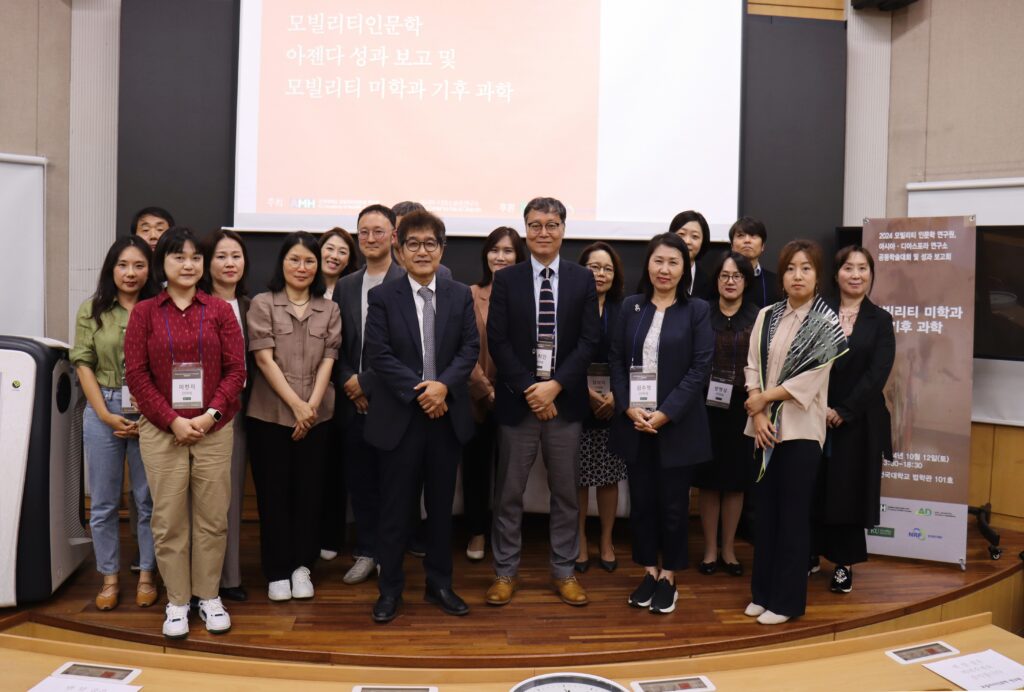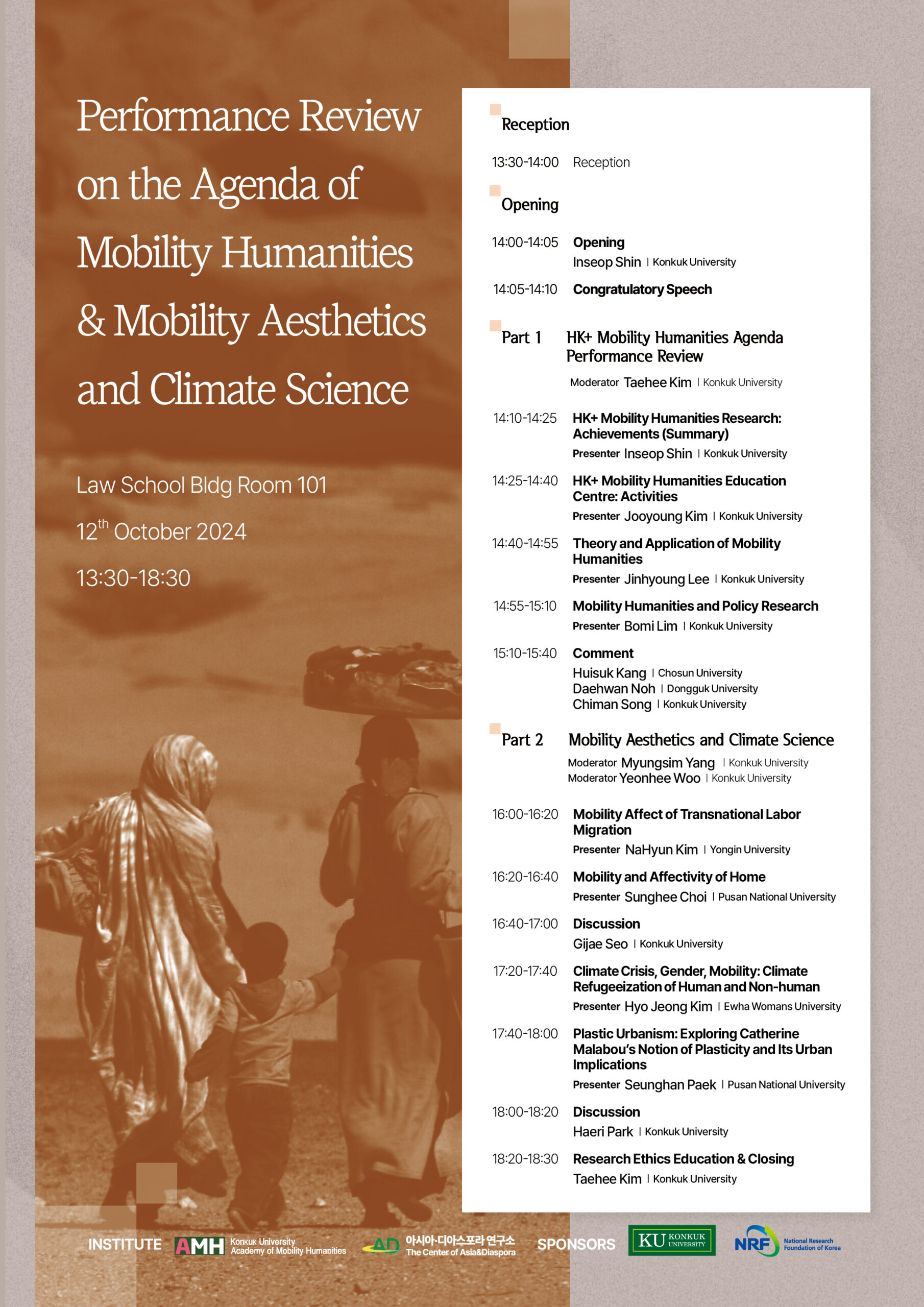Since its founding in 2018, the Academy of Mobility Humanities has been working to establish and systematize the emerging and underexplored field of mobility humanities, focusing on the “Mobility Humanities Based on Co-evolution of Human Being and Technologies: Worlding the Human-mobility Societies in the Future,” promoting various initiatives for its social application and widespread impact. At this conference, the Academy of Mobility Humanities shared a report on its research outcomes and hosted academic discussions.

In the first session, “Report on the Mobility Humanities Agenda,” Director Inseop Shin of the Academy of Mobility Humanities shared the overall research outcomes of the HK+ Mobility Humanities project. Jooyoung Kim, Director of the Humanities Education Centre, presented the achievements of the HK+ Mobility Humanities Education Centre. Next, HK Professor Jinhyeong Lee discussed the theory and application of mobility humanities, and HK Professor Bomi Lim presented the results of policy research.

In the second session, “Mobility Aesthetics and Climate Science,” presentations and discussions focused on topics including labour migration, affect, climate crisis, and urbanism.
Professor Nahyun Kim from Yong In University presented research that examines the issue of transnational labour migration from the perspective of mobility affect, analysing texts related to labour migration. Professor Seonghee Choi from Pusan National University explored the concept of “home,” typically seen as a fixed space, in the context of mobility, offering a rethinking of its meaning.
Next, Researcher Hyojung Kim Shin from the Korean Women’s Institute at Ewha Woman’s University discussed various issues related to the mobility of gender and non-human life in the era of climate crisis. Finally, Professor Seunghan Baek from Pusan National University linked Catherine Malabou’s concept of plasticity to urban studies, proposing the idea of “plastic urbanism.”



